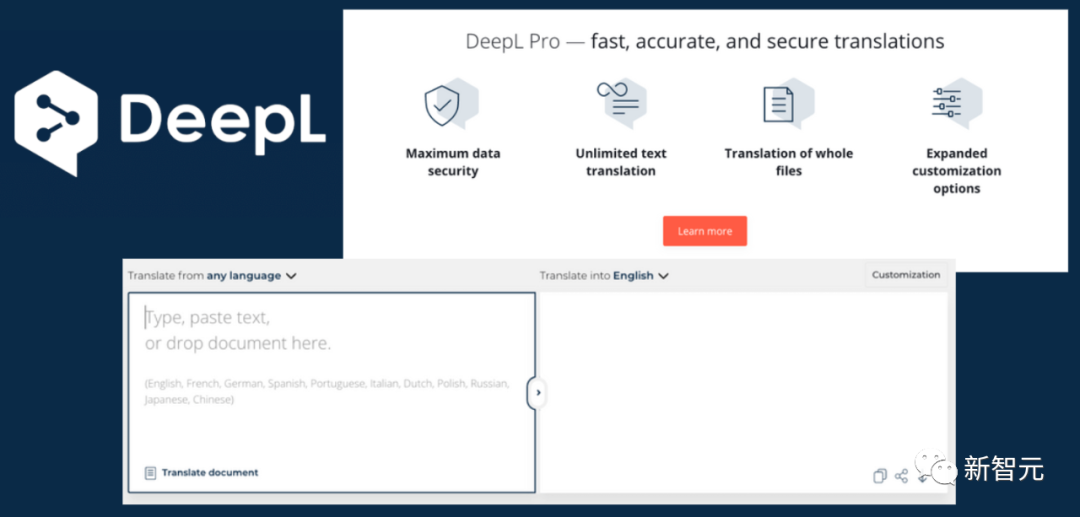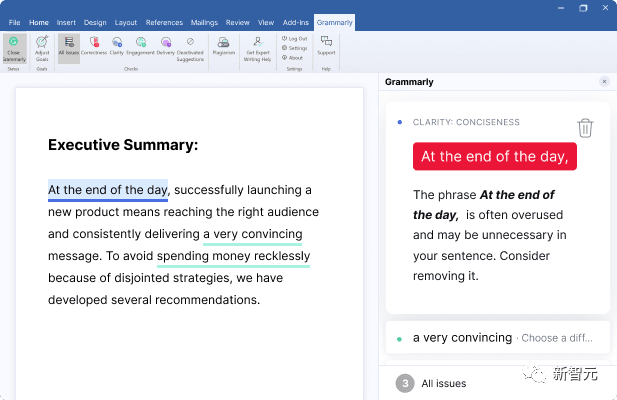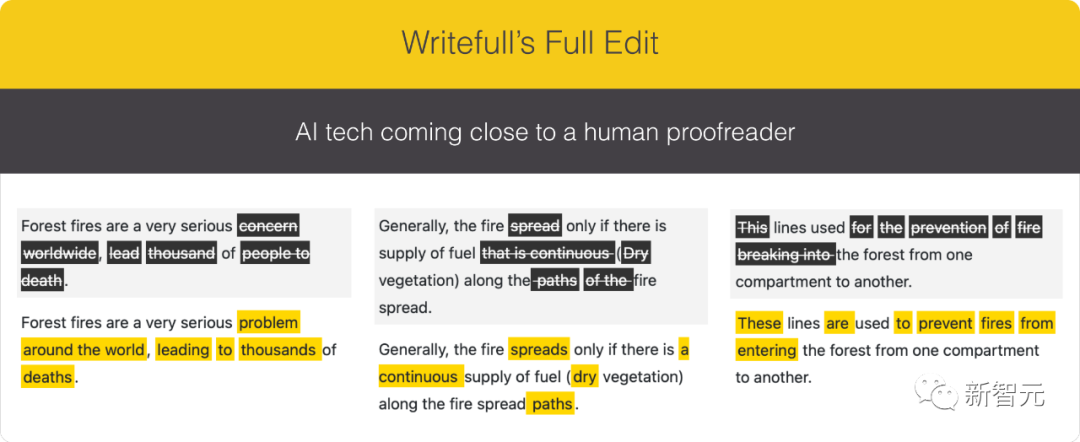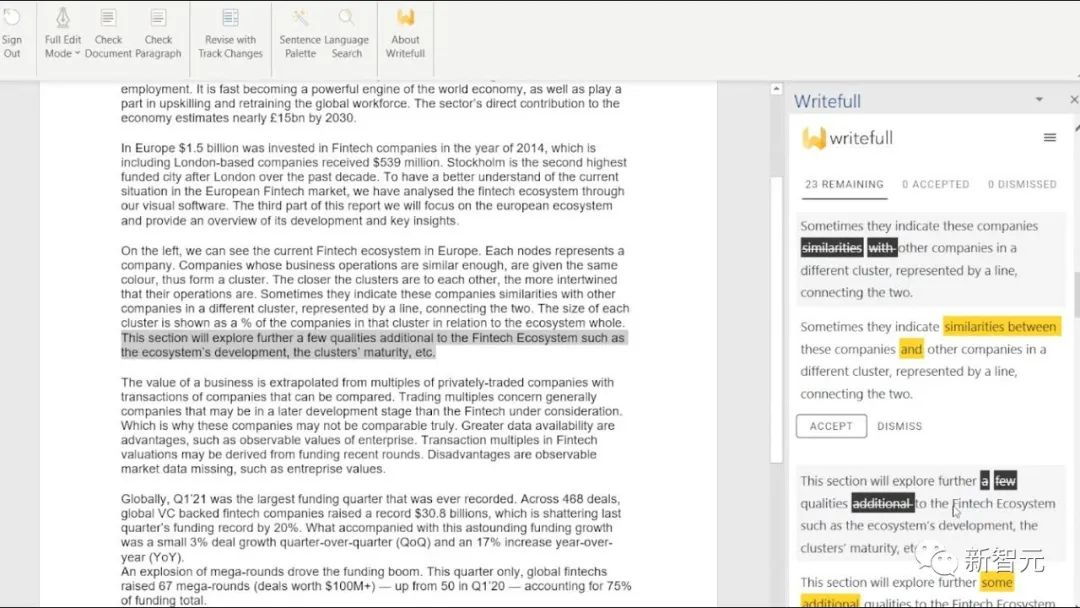Click on " Xiaobai Learning Vision " above , and choose to add " Star " or " Top "
重磅干货,第一时间送达
Editor's Recommendation
English is not good, how to do research? As a universal language in the field of scientific research, the importance of English is self-evident. Nature introduced several gadgets, for researchers whose English is not a native language, you might as well give it a try.
Reprinted from丨Xinzhiyuan
When Yanina Bellini Saibene started her data science career at the National Institute of Agricultural Technology in La Pampa, Argentina, she wasn't fluent in English. She learned a little English in middle school, but her family is not rich enough to afford English cram schools.
She said that her lack of English has greatly hindered her scientific research. English is the world language of science, but she can only publish in Spanish-language journals, keeping her work largely out of reach.

"Sometimes I wonder how much duplication of effort we're doing because we're duplicating work that wasn't published in English."
Because of her poor English writing skills, an editor of an English journal even advised her to "go back to school and study again", which stimulated her until she remembered it 15 years later.
It was obviously unrealistic to go back to school and learn it again. At that time, the only way she could do it was to ask colleagues for help when writing the paper, or to pay someone to polish it. The cost of the latter was astronomical, which once made her overwhelmed, but now, she has other options.
In recent years, a growing number of free or low-cost online tools can translate text, check spelling, correct grammar, and even detect the appropriate tone of text, providing important assistance to those who are not proficient in writing written English.
These tools are powered by NLP models and are mainly aimed at ordinary users.
However, researchers can also use it to polish the writing of papers, whether they are writing papers, writing notebooks, or posting on social media. These tools won't actually help you write, but they can provide scientists (especially those whose English is a second language) with powerful grammatical and stylistic guidance.
Several useful tools

Bellini says her English writing has improved significantly with the help of an app called DeepL Translate and a writing assistant called Grammarly.
Available as a plugin, Grammarly is compatible with a range of apps and platforms: including Microsoft Office, Google Docs, Gmail, Slack, and Overleaf (an online editor for the LaTeX typography language), as well as a keyboard app for mobile devices. It has both free and paid versions.

The free version corrects grammar, spelling, and punctuation; checks writing for brevity; and indicates the tone of your text by displaying appropriate emoji.
The paid version, which starts at $12 per month, also offers revision suggestions for alternative wording, tracks spelling and punctuation consistency, makes suggestions for tone, and detects plagiarism.
Aarón Morelos-Gómez, a materials scientist at Shinshu University in Nagano, Japan, uses Grammarly's free version.
He appreciates that Grammarly supports many different writing environments, and the ability to convert text from American English to British English and back again is useful because some journals prefer to accept either style. His students pass Grammarly checks before submitting their dissertations.
Bellini Saibene prefers the paid version, since suggestions can be made to simplify or shorten the text, which must, of course, be used with care to ensure that changes do not stray too far from the original intent. "As a beginner in English, sometimes I don't know how my words will sound to others," she said.
Other tools are more specifically aimed at research-minded authors.
Writefull is a tool based on an AI trained on academic journals. Hilde van Zeeland, chief applied linguist at Writefull, says the tool recognizes scientific terms and offers grammar and style suggestions consistent with academic writing.

Writefull has plugins for Microsoft Word and Overleaf, using widgets to handle the specifics of scientific papers.
For example, the Sentence Palette widget helps users build sentences from phrases that appear in papers the algorithm has been trained on, while the Paraphraser widget rewrites sentences, enabling authors to add variety or nuance to their texts.
The "Title Generator" uses a summary to suggest a title, while the Summary Generator, launched in June, produces a summary from the text of an article.

Vítor Ramos, a doctoral student in electrical and computer engineering at the Federal University of Rio Grande do Norte in Brazil, uses Writefull and DeepL simultaneously.
To make a passage sound natural, he sometimes writes first in English and then in Portuguese (his first language), and compares DeepL's translations of the two versions with his own attempts. Other tools, such as Google Translate, would also work, he said, but he found that DeepL "was better at processing scientific and technical literature."
Another tool, Paperpal, is currently used primarily by academic publishers and is embedded in the online submission interfaces of about 300 journals, including those from IEEE and ACS.

Researchers can upload their manuscripts to participating journals to undergo a "pre-check" by Paperpal, which flags grammatical and linguistic issues, as well as discrepancies from journal requirements in areas such as references, tables, citations and conflict of interest statements .
For $29 per manuscript, authors receive an automated in-depth editorial opinion that suggests corrections to these issues and highlights them in Microsoft Word's Track Changes feature.
Tools are great, but in the end you have to rely on yourself
Tracy Volz, director of the Engineering Communications Program at Rice University in Houston, Texas, advises that while online tools can be of great help, researchers should not rely too heavily on them.
In the long run, you will be better off developing your own writing skills. “If you rely too heavily on these tools to pick the right words and the right grammar for you, and you’re not an expert reader of your own work, your paper may be full of errors that you don’t even realize are wrong.”
Ana Clemens, an academic writing coach in Prague, points out that poor English writing skills are often not the number one reason a paper is rejected by an editor. When reviewers criticize the writing of a manuscript, they often mean that the paper is unclear and poorly organized.
This is a problem that all authors, regardless of whether their first language is English, can face it, she said.
"Everyone is struggling, how do I actually tell a good story in my paper?"
She encourages students to try to articulate the key ideas of their papers in a few short sentences. Then use it repeatedly when writing, and build on this language style.
Bellini Saibene agrees that writing tools are only one aspect of mastering scientific writing skills in English. To develop an intuitive understanding of the English language, she advises, read a lot and try to imitate the writing style of the people you look up to.
Also, she suggests, find a group of colleagues who are willing to help you.
For her, that community is R-Ladies, an online group aimed at expanding gender diversity among developers of R, a statistical programming language popular with scientists.
Today, Bellini Saibene often co-authors papers with other researchers in the community, and she often asks colleagues to give her feedback before submitting a manuscript.
"When you find a group of people who are willing to listen to you, respect you, help you, and teach you, that's far more valuable than any tool."
References:
https://www.nature.com/articles/d41586-022-02767-9
下载1:OpenCV-Contrib扩展模块中文版教程
在「小白学视觉」公众号后台回复:扩展模块中文教程,即可下载全网第一份OpenCV扩展模块教程中文版,涵盖扩展模块安装、SFM算法、立体视觉、目标跟踪、生物视觉、超分辨率处理等二十多章内容。
下载2:Python视觉实战项目52讲
在「小白学视觉」公众号后台回复:Python视觉实战项目,即可下载包括图像分割、口罩检测、车道线检测、车辆计数、添加眼线、车牌识别、字符识别、情绪检测、文本内容提取、面部识别等31个视觉实战项目,助力快速学校计算机视觉。
下载3:OpenCV实战项目20讲
在「小白学视觉」公众号后台回复:OpenCV实战项目20讲,即可下载含有20个基于OpenCV实现20个实战项目,实现OpenCV学习进阶。
交流群
欢迎加入公众号读者群一起和同行交流,目前有SLAM、三维视觉、传感器、自动驾驶、计算摄影、检测、分割、识别、医学影像、GAN、算法竞赛等微信群(以后会逐渐细分),请扫描下面微信号加群,备注:”昵称+学校/公司+研究方向“,例如:”张三 + 上海交大 + 视觉SLAM“。请按照格式备注,否则不予通过。添加成功后会根据研究方向邀请进入相关微信群。请勿在群内发送广告,否则会请出群,谢谢理解~